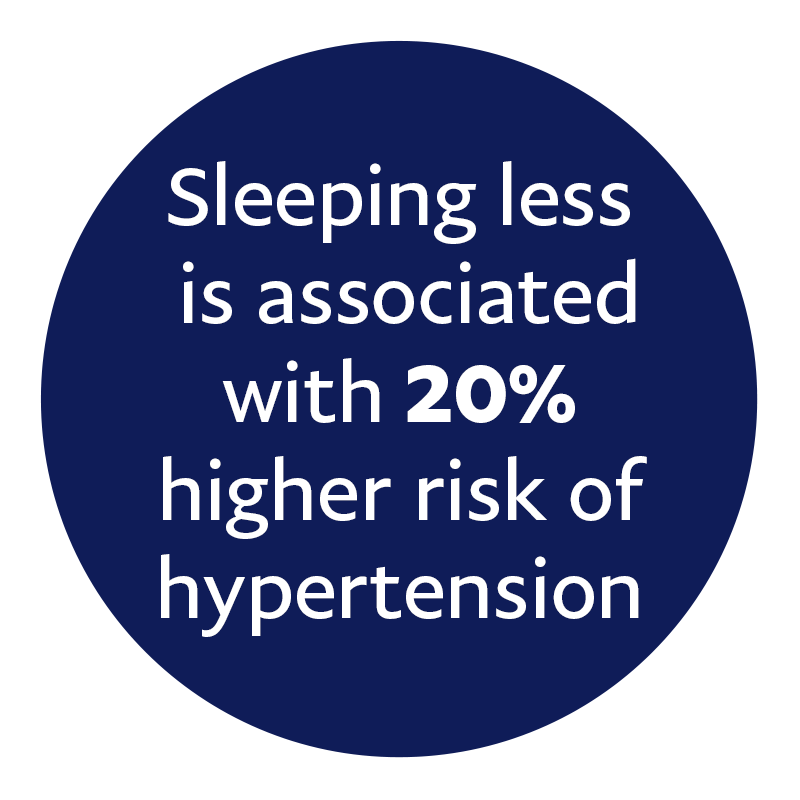If you’re choosing to stay up late into the night to answer a few more emails or finish a report; think again. You might be doing yourself and your business more harm than good.
Thanks to a pervasive “rise-and-grind” culture, the stress of navigating everything from parenthood to a pandemic, and the strain of running their own operations, business owners across the globe are losing out on sleep.
The good news: entrepreneurs in the sleep and wellness industries are making slumber easier to get. And while building and running a company from scratch doesn’t sound conducive to relaxation, these well rested—and successful—business owners are prioritising wellness and sleep health, using their personal quests for better rest to help not just themselves but the rest of us, too.
PayPal tapped into our global community of merchants to help, speaking to sleep-oriented business owners and wellness experts to understand the importance of sleep and get advice for entrepreneurs and others dreaming of better rest.

A Sleep-Deprived Society
In the age we live in, sleep is too often deprioritised—to the detriment of the health and wellbeing of many. The pandemic has exacerbated the issue, resulting in a chronic lack of sleep that knows no geographical boundaries. About 36 per cent of the global population had experienced sleep problems during the COVID-19 pandemic as of mid-2021, according to one study.
Yet, the roots of today’s sleep-deprived society were firmly planted well before the pandemic, as the hustle and grind and “always on” work and social cultures became the norm. A 2019 Australian YouGov study found that only one in seven Australians sleep through the night and that one in three Australians do not get enough sleep. Another 2019 Australia Talks National Survey found four in 10 Australians were not getting enough sleep resulting in a reported $66-billion annual loss in productivity.

Poor sleep habits and the impact on business caused enough concern that a federal government inquiry into the matter recommended more education about the importance of sleep, as well as sleep health screenings for shift workers and a national approach to working hours and rest breaks.
Changing Sleep Culture
Most recently, Koala, a furniture store in Australia, conducted their own Sleep Insights survey in 2021 and found that one in four respondents said they were unsatisfied with the quality of their sleep. The survey also found that, on average, respondents reported a sleep deficit of nearly six hours a week.
Rory Costello, chief commercial officer of Koala in Australia, said he agrees sleep health is of critical importance, particularly to those running a business.
“Perhaps more than most people, business owners need to make the best use of their time and maximise their energy to drive the outcomes they need to be successful,” he said. “Clearly, time is finite, so we just do our best to prioritise and make the most of it. But our energy is something we can grow, and sleep - along with exercise and nutrition - is a critical pillar that enables us to grow our energy reserves and bring our best selves to our work.”
Costello says he prioritises his wellness, focusing on daily exercise which ultimately helps him get a better night’s rest.

“Having young kids, I try to avoid late nights and instead wake up a bit earlier than they do so I can get a moment of uninterrupted peace during the day,” he said. “I'm not an exercise freak, but if I don't get out for my regular run or cycle, things start to feel chaotic and unbalanced pretty quickly.”
Reversing the sleep deprivation trend will require changing sleep culture, particularly for those who subscribe to the “sleep when you’re dead” mantra.
Mark Zhang, founder of American company Manta Sleep, admits that when he was younger he thought the key to success was to sleep just five hours a night and work all day.
“It is absolutely idiotic,” he said. “It is so destructive to be pushing this narrative. It is misleading to [trick] them into thinking success is created by hustling, doing lots of work, and not resting.”
Kitty Shum, who founded Canadian company Loti Wellness, said increasing self-care is important to shifting the culture around sleep. “In this fast-paced world there are so many things that we need to do, that we don’t tend to nurture the things we want to do,” said “Personal wellness can take a back seat when external demands on your time and energy cause you to lose focus on what’s important physically, mentally and emotionally,” she said.
And for small business owners who are also juggling parenthood, the demands can quickly pile on. “There were definitely times when we were stretched at work while dealing with babies not sleeping,” shared Cassandra Cannon, co-founder of American sleepwear retailer Lake Pajamas. “I remember feeling like I was in a fog and couldn’t think clearly at work because I was so tired,”
Balancing Wellness and Business
For business owners, finding time for wellness—including adequate sleep—can be particularly challenging when on the hook for the fate of an operation that can feel like a 24/7 job.
For tips on how to get a good night’s sleep, click here
Costello said whenever he is feeling overwhelmed and has trouble sleeping, he tries to slow down his thoughts by writing them down.
“Once you write things down, they feel less overwhelming and can be organised and tackled. This was good advice given to me early in my career by a mentor that I still use to this day,” he said.
The other thing he does is try to keep a healthy perspective about the issues that are on his mind.

“Getting perspective is really important. Usually, things are never as bad as they seem, and some distance from the issues can help you get that perspective - this can take the form of talking it over with someone you trust, or just going for a walk.”
Anne Lattimore, who also co-founded Lake Pajamas, recommended changing tasks when stress sets in, if possible. “I get re-energised when I accomplish even small tasks and mark something off the to-do list, and it often helps when I re-tackle more difficult things with fresh eyes.”
Mark from Manta Sleep suggests that business owners look for opportunities to simplify, automate, delegate, and hire to reduce the burdens that come with entrepreneurship – leaving more room for personal wellness. He also encourages companies to adopt a “pro-nap” culture.
For more resources for small business owners, including tips and advice drawn from the global network of small business owners that PayPal works with, visit our Business Resource Center.